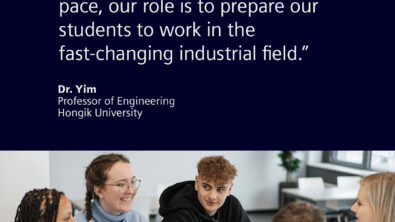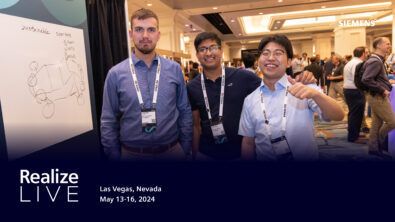Bridging the sustainability skills gap: Siemens and the University of Colorado Boulder’s digital credentialing partnership

In an exciting move to transform the future of engineering education, Siemens is proud to partner with CU Boulder to launch an innovative new digital credentialing program. This initiative will equip students with the sustainability skills and knowledge required for the future of engineering. As organizations around the world embrace sustainable practices, it’s increasingly important to equip the workforce with the skills needed to succeed in this area. This program empowers students to gain specialized knowledge and make meaningful contributions to their organizations and society through this paradigm shift. This unique learning experience not only offers the micro-credential certificate, but also an option to enroll at CU Boulder to receive credit for these courses upon completion of an additional level of assessment.
Credentials offering valuable skills for sustainable engineering, design and manufacturing
The CU Boulder courses, developed in partnership with Siemens, focus on providing students with the practical skills, knowledge and methodologies needed to build a more sustainable future. CU Boulder’s graduate credential will consist of nine Coursera-based courses. The first two courses, Sustainability and the Circular Economy and Applied Sustainability Engineering, are already live, with other courses will follow later this year.
Sustainability and the Circular Economy will introduce students to foundational concepts such as the reasons behind climate change and its ramifications. Among other topics, the course will also explore the impact of power generation, transportation and agriculture, as well as the concept of the circular economy.
In the Applied Sustainability Engineering course, students will learn how to conduct a carbon footprint analysis and recognize the characteristics that define a sustainable product and its packaging. Students will also learn how different technologies generate electricity and how to use various techniques to design products that meet sustainability certification standards.
“Partnering with Siemens Digital Industries Software to develop a credential focused on applied sustainability enables us to create a future that provides both economic success and a more enduring, resilient and sustainable planet,” said Dr. Christy Bozic, faculty director, Engineering Management Program, University of Colorado Boulder.
Industry-validated education
This micro-credential will be the first of its kind to be recognized by the Accreditation Board for Engineering and Technology. ABET is a nonprofit, non-governmental agency responsible for accrediting programs in applied and natural science through a quality assurance process. The ABET quality evaluation process for industry micro-credentials will ensure Siemens’ credentials meet the defined standards of quality and address areas with skills and knowledge gaps to prepare the future engineering workforce.
Designed for students with a passion for sustainability
While the program welcomes students from diverse backgrounds, it particularly caters to those pursuing engineering and technical disciplines. However, students from related fields with a passion for sustainability, innovation and technology are also encouraged to participate.
If you’re interested in either CU Boulder’s Applied Sustainability Engineering or Sustainability & the Circular Economy courses, then enroll today.
You can also read more about Siemens’ digital credentialing program here.


